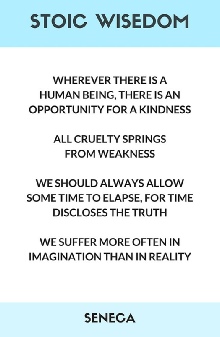



 NEXT
NEXT
 BACK
BACK
 Forum
Forum


Philosophical musings on Quanta & Qualia; Materialism & Spiritualism; Science & Religion; Pragmatism & Idealism, etc.




Post 25. 03/30/2018
BothAnd Buddhism
Moderation, Meditation, and Mediation
The BothAnd principle doesn't mandate meditation, but it does involve philosophical introspection of some kind. Just as the Buddha was said to be "enlightened" by his inner odysseys, merely by looking at the man in the mirror, so to speak, we can gain useful insights about ourselves in relation to the world around us. The balancing act of moderation requires a lot of self-
Since the Golden Mean and the Middle Way have been integral to so many different religions and philosophies over the ages, we can rest assured that there is wisdom in the Middle of the Road, despite the negative connotations that have been attached to it by those who like to live on the edge. Against the positive characteristics, such as Balanced, Disciplined, and Reasonable, we often hear disparaging terms, like Compro-
End of Post 25
Axial Age.
<< This period saw the emergence of five major thought streams springing from five great thinkers in different parts of the world : Buddha and Mahavira in India, Zoroaster in Persia, Pythagoras in Greece and Confucius in China.>>__Wiki
According to Karl Jaspers, the period between 800 to 200 B.C.E. was the time in which all foundations that underlie current civilization came into being. Although there was no single sage identified with the Jewish tradition, its roots also were grounded in this fertile era of religious and philosophical ferment.
Around 538BC, the Jews returned to Jerusalem from Babylonian captivity with a renewed enthusiasm for monotheism, and some novel notions borrowed from Zoroastrianism. Later an infusion of Greek rationality added a persuasive rhetorical element to their authoritarian legalistic mindset.
From that cross-
That monotheistic tradition has now splintered into thousands of quarreling sects. So the time is right for another consilience of tradition & reason, of religion & science. What will be the spark of re-
If you don’t control
your mind
someone else will

Stoic Wisdom 1
click here for popup
Stoic Wisdom 2
click here for popup
Stoic Wisdom 3
click here for popup



• Middle of the Road :
In our cars, we drive down the center of the road, trying to avoid the ditches on either side. Sometimes we drift toward one extreme or the other, but on the whole, our sinuous path is properly centered. To control our cars we must focus our attention on both what’s inside, what we can control, and outside, what we must steer around.